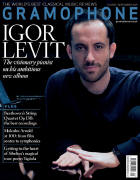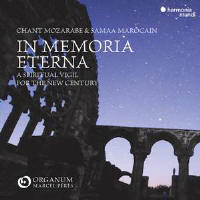Texte paru dans: / Appeared in: |
|
|
Outil de traduction (Très approximatif) |
|
|
Reviewer: Fabrice Fitch Much like the new Gothic Voices album (see page 66), this rolls back the years in more ways than one. For one thing, it’s been a while since Ensemble Organum appeared on the label on which it first came to prominence; for another, Harmonia Mundi itself specialised in recordings of ‘world music’ long before the term became fashionable, and this project re-engages with that aim, which of late had become less prominent. But much as it may bring back happy listening memories (for me, certainly), this recording isn’t an exercise in nostalgia: its premise is a logical extension of the ensemble’s founding aims. In reimagining plainchant performance, Marcel Pérès has always drawn inspiration from oral traditions of Europe and the Mediterranean, with special emphasis on those in which Christian and Islamic cultures intersect. Here, chants from the Mozarabic rite (Christians living in Spain under Arab rule) are juxtaposed with those of the Moroccan spiritual practice known as Samaa. This intersection can happen within the same piece, and in this sense goes beyond anything that Organum has previously committed to disc, with Latin and Arabic following each other, not seamlessly (which would miss the point) but coherently. One of the key singers here, Ahmed Saher, has been associated with the ensemble for a long time, and the project itself has been more than 20 years in the making. Monophony is constantly inflected by the ornamental practice and octave doublings (the latter used sparingly), occasional rhythmicisation, and improvisation in the recitative sections. Pérès has always been open about the speculative aspect of his projects; this one he describes as a ‘utopia’, reflecting the universal aspiration towards peace through dialogue which music is uniquely qualified to facilitate. Readers may be reminded that similar aims underlie recent projects from Hespèrion XXI; it seems to me that with Ensemble Organum the result is more compelling because less artful; more direct, also, because of the impact of voices on their own – and these voices in particular. It is moving, also, to hear again Pérès’s own voice, which, while a little attenuated, has lost none of its expressive power. |
|




